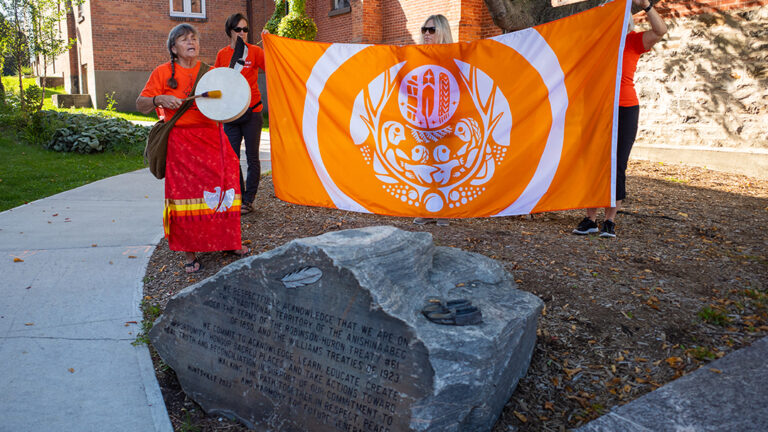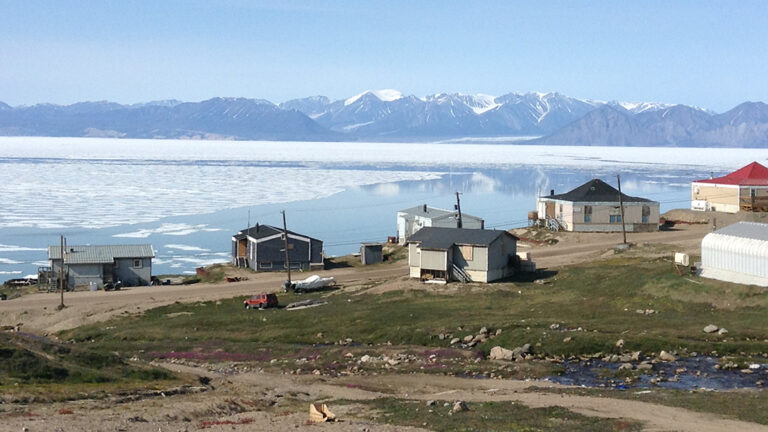A study of why Indigenous residents in a Calgary non-profit represent nearly half of “negative exits” (while only 10% of tenants) shows that isolation and stereotyping contribute to a sense of alienation.
“I’m 56. I’m not a child. Condescending statements like that bring me back to residential school,” shares an Indigenous resident, discussing an interaction with a building manager. Another tenant describes experiencing racism from non-Indigenous residents daily: “sometimes they’ll say: ‘did you drink up all your cough medicine today?’”
These experiences were among many documented in the report, Improving Stability Among Indigenous Residents at Horizon Housing.
Located in Calgary, Alb., Horizon Housing is a non-profit, affordable housing provider that owns and operates over 800 units across 19 buildings, as well as nine supported group homes.
Indigenous residents at Horizon Housing have greater difficulty remaining housed, compared to non-Indigenous counterparts. Nick Falvo, a Calgary-based research consultant, was tagged to conduct one-on-one interviews and focus groups with Indigenous Horizon residents and subject specialists to shed light on the issue.
Specifically, the purpose of the report was to identify the reasons, and find solutions, for the disproportionate number of negative exits experienced by Indigenous tenants.
A negative exit is defined as a tenant leaving a Horizon building involuntary—this can include evictions for non-payment or a serious incident, or non-renewals where Horizon chooses not to renew a lease. Although negative exits are expected, only 10% of Horizon Housing residents identify as Indigenous yet they account for 44% of negative exits.
Renting while Indigenous in Calgary
The report’s more salient findings point to a disconnection between Indigenous residents, staff and non-Indigenous residents.
“I’ve had other tenants ask me for drugs. I just got asked last night for drugs. I have two children here with me. They’re 3 and 4,” said one resident.
These findings are representative of a larger issue regarding racial biases and cultural misunderstandings that have dire consequences for Indigenous people living in Calgary.
A 2019 report exploring the experiences of Indigenous people renting in Calgary paints a bleak picture involving racist stereotypes held by landlords—with concern about Indigenous Peoples’ reserve habits, such as intergenerational living and not paying rent—, a lack of support for individuals transitioning from reserve to city, and long wait lists for subsidized housing.
“The landlords condemned reserve lifestyles while portraying those individuals moving from the reserve and into the city as ill-prepared for urban living,” and worried “that Indigenous tenants will inevitably invite family to stay permanently; or large numbers of uninvited family members will simply arrive and never leave,” states the report.
Additionally, although 10% of Calgary’s population experiences core-housing need—which can be defined either as a household spending more than 30% of its gross household income on housing or living in unsafe and inadequate lodgings—the percentage jumps to 17% for Indigenous households.
Findings
“Three dominant themes emerged from interviews with Indigenous residents during the present study,” writes Falvo.
The first, a strong desire for regular cultural programming paired with the involvement of Elders or Indigenous staff was expressed. A subject specialist explained that “many Indigenous households are disconnected and have learned about their culture through the media—which is not a great way to learn about Indigenous culture.”
Some of the interviewed tenants suggested that being introduced to other Indigenous tenants could be beneficial.
A second issue pertaining to smudging was brought up: non-Indigenous tenants are often unaware of the cultural significance of this common Indigenous practice that involves the burning of herbs like sage or cedar to cleanse and ward off negative energy.
Residents advanced their desire to smudge was offset by concern the smell might be mistaken for drug use. “I’m worried about burning sweetgrass. We’ve had people call management on us, thinking that we’re smoking drugs,” said a resident.
The fear of being judged is amplified, since Horizon Housing lacks clear rules about smudging.
The third major theme relates to residents feeling uncomfortable, and uneasy, with frequent police presence at Horizon buildings.
The tense relation between police and Indigenous people has roots that stretch back generations. Some reports reveal that an Indigenous person is 10 times more likely to be shot and killed by a police officer than a non-Indigenous person. Not surprisingly, Indigenous people report less confidence in police than non-Indigenous people, according to another Statistics Canada study.
A focus group participant concluded that “many Indigenous people have negative experiences with law enforcement officials. So, there’s a genuine fear. They worry they’ll get in trouble, either with police or their neighbour. It’s good to have police liaison officers come to meetings with residents.”
The path forward
It is perhaps not surprising that some of the policy recommendations focus on nurturing community, with a strong emphasis on cultural practices and programming.
When larger numbers of Indigenous people began moving to urban centres in the mid-1950s, Friendship Centres were created to provide community, guidance and essential Indigenous cultural programs to the urban population.
“Your home is your nest. Your nest is your home fire. That is where you do all your healing, sleeping, the growing of your family,”says Melissa Roy, director of operations at the Aboriginal Friendship Centre of Calgary, in an article discussing the importance of indigenizing tenancy documents.
“Not everybody talks the same, not everybody makes the same references. And more importantly, the life experiences are different if you are coming off reserve into an urban setting. That is a culture shock on its own. Reserve living is intergenerational living: when you come into the city, you don’t have these supports readily available.”
These insights certainly align with the Nick Falvo’s 10 recommendations to reduce negative exits for Indigenous residents at Horizon Housing.
There is a key emphasis on strengthening existing partnerships with Calgary-based non-profits, as well as seeking new ones to offer necessary supports. Among the suggestions are enhanced staff training, crime prevention through environmental design and the hiring of an Indigenous liaison person. Whether these adaptations are successful could be gauged by an annual survey of Horizon’s Indigenous residents.
The full report is available here.



